- All
- [Open Science Policies]
- Auvergne-Rhône-Alpes
- Bourgogne-Franche-Comté
- Brittany
- Centre-Val de Loire
- Corsica
- DROM-COM
- Grand Est
- Hauts-de-France
- Île-de-France
- Normandy
- Nouvelle-Aquitaine
- Occitania
- Pays de la Loire
- Provence-Alpes-Côte D'Azur
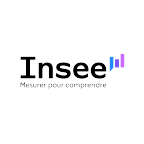
Insee
Established by the Finance Act on 27 April 1946, the National Institute of Statistics and Economic Studies (INSEE) has spent decades fulfilling a mission of general interest: collecting, producing, analysing and disseminating information on the French economy and society, in order to inform public debate and decision-making. As a directorate-general of the Ministry of Economy and Finance, INSEE carries out its activities in accordance with professional independence, as guaranteed by the Public Statistics Authority. INSEE coordinates the French public statistical system, which includes ministerial statistical services (SSM), and contributes actively to the European statistical system and the work of international organisations such as the UN, OECD and Eurostat.
With offices throughout France, INSEE deploys teams of experts to produce high-quality statistical data and information that is accessible to all, thereby participating in the development of a statistical culture within our society.
Read more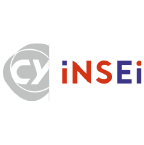
INSEI
Created by the 2005 law on equal rights and opportunities, participation and citizenship for people with disabilities, INSEI is a national public training and research institute dedicated to special educational needs, accessibility and inclusive education. Under the dual authority of the Ministry of National Education and Youth and the Ministry of Higher Education, Research and Innovation, INSEI contributes to the definition and implementation of policies relating to disability and severe educational difficulties. It supports the UNESCO Chair in Disability, Education and the Digital Age, which aims to create, develop and evaluate innovative digital resources to promote a more inclusive education and society in France and abroad.
Its mission is threefold:
- Training for all those involved in inclusion: INSEI offers training courses for professionals and individuals on accessibility and support issues.
- Conducting interdisciplinary research: the Grhapes research laboratory (EA 7287 – Groupe de recherche sur le handicap, l’accessibilité, les pratiques éducatives et scolaires) aims to involve the Institute in cutting-edge research in the field of schooling, education and training for people with special educational needs.
- Development of a reference resource centre: INSEI contributes to the information, publication and distribution of technical, scientific and educational resources for professionals in the field of educational, social and professional support and accessibility.
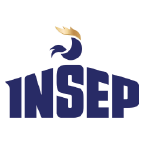
INSEP
France’s National Institute of Sport, Expertise, and Performance (INSEP) is a public institution under the administration of the Ministry for Sports. Established in 1945, it is both a benchmark elite Olympic and Paralympic training centre as well as a powerful voice in elite sport policy in France.
Through its unique, modern infrastructure located within an exceptional 28-hectare campus in the heart of the Bois de Vincennes in Paris, INSEP supports outstanding sporting performance in all its forms for elite athletes competing in all sports. The institute offers innovative support and individually tailored training programmes, medical care, research, psychological support as well as training and professional reorientation. Every day, athletes’ programmes are studied, remodelled and improved through the commitment, motivation and availability of all those working at INSEP. Each year, the institute reiterates its goal of optimising all areas to maximise the achievement of French athletes, enabling them to reach the top of the podium.
Read more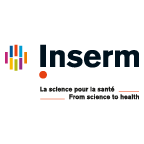
Inserm
Since 2006, a partnership between the CCSD and Inserm offers to transfer fulltext HAL deposits to the PubMed Central archive.
Founded in 1964, Inserm is a public scientific and technological institute which operates under the joint authority of the French Ministries of Health and Research. The institute is dedicated to biomedical research and human health, and is involved in the entire range of activities from the laboratory to the patient’s bedside. It also partners with the most prestigious research institutions in the world that are committed to scientific challenges and progress in these fields.
HAL portal
Open Science Policy
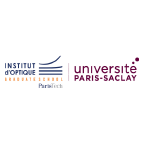
Institut d’Optique
Founded in 1917, the Institut d’Optique Graduate School is a world leader in higher education, research and innovation in optics and photonics.
The Institut trains physics engineers, master’s students and some of the most innovative PhDs in business and academia.
At the heart of networks of excellence, its international influence is based both on the quality of the training it provides and on its research and technology transfer.
The Institut is a major engineering school member of University Paris-Saclay and is established on the campuses of excellence of Paris-Saclay and Bordeaux, as well as Saint-Etienne.
The scientific contributions of its research center are major : the researchers publish on average one article per week and are quoted 30 times daily.
Read more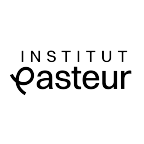
Institut Pasteur
It is home to several national (CNR) and international (CCOMS) centers of expertise that monitor infectious diseases. The Institut Pasteur Medical Center is a health center specialized in infectious and tropical diseases, travel medicine and allergic diseases.
The Education Center welcomes every year over 600 students (Master’s and PhD students, post-doctoral fellows, experienced researchers and health professionals). Some 250 PhD students are present in campus laboratories in any one year, making the Institut Pasteur a major stakeholder when it comes to training of young scientists through research.
HAL portal of the Institut Pasteur
HAL portal of the Pasteur Network
Open Science Policy
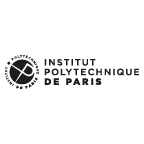
Institut Polytechnique de Paris
The Institut Polytechnique de Paris is a public higher education and research institution comprising five prestigious French engineering Schools: École Polytechnique, ENSTA Paris, ENSAE Paris, Télécom Paris and Télécom SudParis. Under the aegis of the Institute, they bring together two centuries of expertise to pursue two major goals: to develop world-class training programs and cutting edge research. Building on the strength of its five founding institutions, the Institut Polytechnique de Paris has established itself as a leading education and research institution in France and internationally. École Polytechnique, ENSTA Paris, ENSAE Paris, Télécom Paris and Télécom SudParis have contributed to major industrial and technological breakthroughs over the last two centuries. Their alumni include Nobel prize-winners and prominent figures in the worlds of politics, business and research.
The Institut Polytechnique de Paris develops multidisciplinary education and research programs drawing on a community of 1,000 faculty members in ten disciplinary departments. This multidisciplinary approach creates new synergies between different fields, for example by promoting the application of new technologies to traditional engineering fields such as physics or transportation. Knowledge transfer to the economy and society is at the heart of the Institut Polytechnique de Paris’ mission and its network of incubators and dynamic ecosystem helps drive cutting-edge innovation and cultivate students’ inventiveness.
Read more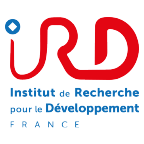
IRD – French National Research Institute for Sustainable Development
HAL Portal
Open Science roadmap
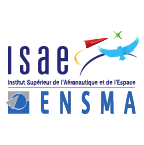
ISAE-ENSMA
ISAE-ENSMA is a reference in its region and at national level, and a member of the ISAE Group, the world’s leading aeronautics and space training and research center. ISAE-ENSMA responds to industrial and societal challenges in the fields of transport and energy by offering high-level scientific and technological skills.
ISAE-ENSMA promotes the values of sharing, solidarity and excellence
For more than 75 years, ISAE-ENSMA has built up a solid reputation, training more than 6,500 top-level engineers and conducting research of international renown (listed in the Shanghai ranking), developed through numerous partnerships with major companies.
The courses taught at ISAE-ENSMA cover a wide range of fields: fluid and structural mechanics, aerodynamics, energy, thermodynamics and propulsion, materials and on-board computing. The school’s range of courses (engineers, masters and doctorates) enables it to meet the many expectations of industry through internationally recognized innovations in terms of scientific and technical skills, responsiveness and ability to adapt to new environmental challenges.
The school offers :
- 1 Student engineering cycle,
- 1 specialized engineering cycle under apprentice status,
- Two Master’s degrees, with the possibility of courses open to international students.
- 1 MIMME doctoral school (Mathematics, Computer Science, Materials, Mechanics, Energy), supported by two laboratories (Pprime and LIAS), provides a structure for training through research.
- ISAE-ENSMA also offers the possibility of obtaining its diplomas through the validation of acquired experience (VAE) as part of lifelong learning.
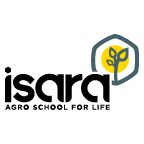
ISARA
Thanks to diversified training programs which are open to the world and firmly in touch with the professional world, Isara prepares the future of its students by promoting interdisciplinarity, curiosity and initiatives. Isara brings together entrepreneurial and innovative energies , and place the human aspect at the heart of our project. Isara fulfills its commitment to being open to innovation in a constantly evolving world, throughagile operating procedures.
Read more
Kedge Business School
KEDGE Business School is a benchmark French business school with 4 campuses in France (Paris, Bordeaux, Marseilles and Toulon), 2 in China (Shanghai and Suzhou), 2 in Africa (Sénégal, Côte d’Ivoire) and 5 partner campuses (Avignon, Bastia, Bayonne, Dakar, Abidjan).
KEDGE BS offers a portfolio of 36 management and design programmes for students and industry professionals. It also provides customised educational programmes for businesses at national and international levels.
Teacher-researchers at Kedge contribute to the advancement of knowledge in management through basic and applied research. They are behind the production of publications, works, conferences and more which puts the school in 2nd place for research in the French Business Schools rankings.
The school is internationally recognised for the management research it conducts in the areas covered by its centres of excellence and specialisms.
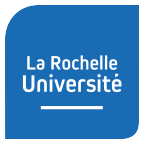
La Rochelle Université
The University of La Rochelle, founded in 1993, was the fruit of a political strategy decided by Michel Crepeau, the former Mayor of the town, to provide further education facilities for the region.
Twenty-fiveyears later, with the further education landscape undergoing radical change, it continues to forge a clear and singular identity founded on audacious projects and a strong sense of a community anchored in an exceptional town.
The “La Rochelle Université” brand is associated with high level research centred on the distinctive social challenge of a Smart & Sustainable Urban Coastal Environment, and teaching of the highest standard.
Based on a multi-disciplinary foundation, its dynamic high-level multidisciplinary research is carried out in six research units, together with three joint research units accredited by the CNRS, and the university has established a position of national and international excellence in environmental, energy and digital transitions. Thanks to a wealth of experience in multidisciplinary research we are actively helping to solving some of the major societal issues of the 21st century.
Read more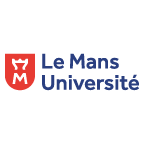
Le Mans Université
With over 1100 teachers, professors, researchers, and administrative and technical support staff, Le Mans Université has adopted an approach aimed at lifelong personal and professional fulfillment for everyone: undergraduate and graduate students, adult learners, vocational training, even education abroad.
Underlying a quality education is the University’s ongoing commitment to the use of state-of-the-art individually-tailored pedagogical tools: distance learning, on-line resources, projects, one-on-one tutoring…
The University has developed diverse and quality research activities connected to its laboratories which are responsive to the essential questions of today’s world. These laboratories, including several associated with the CNRS, are nationally and internationally recognized.As part of its core strategy, Le Mans Université has created thematic and interdisciplinary institutes aimed at fostering a three-pronged synergy: research, training and innovation (scientific and pedagogical). Our research topics are varied: acoustics, computer science, languages and literatures, molecules and materials, risk and insurance, management, law, social and human sciences, biology, sports and health…
Read more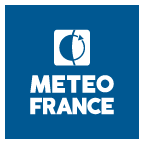
Météo-France
Météo-France is the French national meteorological and climatological service. Its prime mission is to ensure meteorological safety for people and goods. It translates into a weather monitoring map that signals dangerous phenomena, their consequences, and the precautions to protect oneself. Sea forecast and avalanche monitoring complete these measures in Continental France, and a hurricane watch alert system for the Overseas territories.
Météo-France’s main missions consist of:
- the development and maintenance of surveillance network,
- the collection and processing of climatological data,
- the weather forecast,
- the elaboration of climatic projection,
- the research in the fields of meteorology and climatology.
Météo-France is at the service of 3 categories of clients:
- State services (people and goods safety) and Defence,
- the aeronautic sector,
- professionals in a variety of economic sectors (energy, local authorities, construction industry…)
Among Météo-France strong points is the ability to cover every aspect, from operational to research, at any scale of time and space. The interaction between engineers and researchers is an important asset.
A reference on a global scale, Météo-France holds an important place among the main organisms of meteorological cooperation: the World Weather Organisation (WWO), the European Centre for Medium-Range Weather Forecasts (ECMWF), the European Organisation for the Exploitation of Meteorological Satellites (Eumetsat), and Eumetnet.
Météo-France is currently under the jurisdiction of the French Ministry of Ecological Transition.
Read more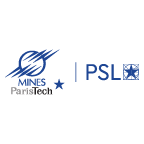
MINES ParisTech
MINES ParisTech, the École des Mines de Paris, is one of the oldest French higher education institutions in engineering. While its inspirational model has not changed, its teaching methods and its research have been anticipating and accompanying its times ever since 1783.
Mines ParisTech is a “Grande ecole” centred on its research activities. it encompasses all fields of scientific knowledge thanks to 15 innovative research centers exploring five major fields. With 260 research academics, 400 doctoral students and 60 post-doctoral students, Mines ParisTech ranks top among the Grandes ecoles for the volume of contractual research.
The institute’s laboratories are partly associated with CnRs, the ecole Polytechnique, inseRM, inRiA, institut Pasteur, etc. Their research, at the intersection of many fields, has led to
the emergence of new disciplines (geostatistics, mathematical morphology and automatic control systems) which are now studied by the scientific community and disseminated throughout industry and the services.
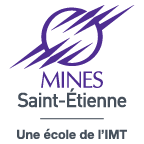
Mines Saint-Etienne
Mines Saint-Etienne’s mission is to support the economy by:
- Educating highly qualified managers with strong technical and scientific skills;
- Developing applied research to meet the needs of industry;
- Contributing to companies’ innovation, creation & competitiveness worldwide.
Foreign students may enroll in all or part of the master degree programmes – some of which are partly or fully conducted in English. Courses in French as a foreign language are offered on a regular basis and can be individually tailored. Foreign students may also work on their master theses at the École des Mines, for which regional and national grants are available. Visiting professors are welcome too, as well as foreign PhD candidates or to co-supervision of doctoral theses.
Read more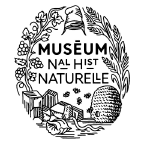
Muséum national d’Histoire naturelle (French National Natural History Museum)
Environmental awareness and protecting the planet lie at the heart of contemporary debates. The Muséum is fully committed to these issues and occupies a position of reference thanks to its varied missions, which include basic and applied research, conservation and the expansion of its collections, education, expertise and the dissemination of knowledge.
The Muséum is a research centre and draws on laboratory work and worldwide expeditions, a wide range of disciplines, outstanding collections and recognised expertise. Its mission is also to share knowledge, which it does through education and dissemination activities. With a clear objective – to make knowledge about the natural world accessible to everyone and to make as many people as possible aware of the importance of protecting our planet.
One of the Muséum’s distinctive features is that its activity is spread over 13 sites throughout France. Its historic heart is situated in Paris, at the Jardin des Plantes, where laboratories, exhibition galleries, a zoo and educational institutions can all be found. Two other key Parisian sites must also be mentioned – the Parc Zoologique de Paris and the Musée de l’Homme (re-opened in October 2015). The remaining sites to be discovered in all four corners of France include two marine stations, an arboretum, a zoo, botanical gardens, a prehistoric excavation site and laboratories.
This historic institution was created in 1635. Originally a royal garden for medicinal purposes and an educational institution, it became the Natural History Muséum in 1793. For four centuries, it has been the source of major scientific discoveries in natural sciences. It has developed over the years thanks to some great minds. Buffon in the 18th century and Daubenton, Lamarck, Geoffroy Saint-Hilaire and Cuvier in the 19th century all provided excellent teaching, extended and studied the collections and were deeply committed to sharing their knowledge with the public.
Today, many different professions exist side by side at the Muséum. Teacher-researchers hunting down knowledge to make scientific progress, taxidermists devoted to giving back power, movement and expression to specimens in the collections, gardeners rising to the challenge of growing plants from different climates in the alpine garden, electricians, carpenters, reception assistants, vets, museologists… all working with the same passion and with one single aim – to further explore and promote nature in order to protect it better.
HAL portal
Open Science Policy
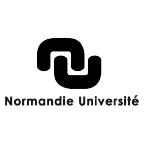
Normandy University
Normandy University is a group of universities, encompassing universities and higher education and research institutions from Normandy.
These institutions are:
- Caen Normandie university,
- Le Havre Normandie university,
- Rouen Normandie university,
- ENSICAEN,
- INSA Rouen Normandie,
- ENSA Normandie,
- CESI,
- ESIGELEC,
- UniLaSalle,
- Ésam Caen/Cherbourg,
- ESADHaR,
- EM Normandie Business School,
- NEOMA Business School,
- Caen University Hospital,
- Rouen University Hospital,
- Centre François Baclesse,
- CROUS Normandie, and
- GIP Labéo
HAL portal
Open science policy
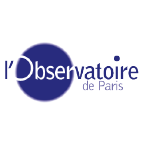
Observatoire de Paris
The Observatoire de Paris (Paris Observatory) is an institution (“Grand Établissement”) that falls within the jurisdiction of the French Ministry for Higher Education, Research and Innovation.
Founded in 1667, it is the largest national research center for astronomy, as it makes for a third of the French research community in astronomy.
The Paris Observatory is made up of five departments, an institute, two scientific services, and joint services. Spread on three campuses – Paris, Meudon and Nançay – its scientific entities are all working in collaboration with CNRS (French National centre for scientific research) and other prestigious French universities. The Observatory also coordinates two external laboratories.
Read more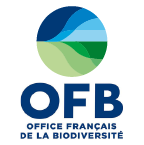
French Biodiversity Agency
The French Biodiversity Agency (Office Français de la Biodiversité or OFB) is a public institution dedicated to the protection and restoration of biodiversity in Metropolitan France and its Overseas Territories, under the supervision of the ministries responsible for Ecology and Agriculture & Food.
The OFB coordinates national information systems on biodiversity, the marine environment, water and the aquatic environment. As such, it collects, structures and makes available to everyone information from numerous public partners and associations. It contributes to the development of knowledge by carrying out or supporting scientific and technical work in partnership with research institutions. In this way, it produces expertise based on the latest scientific findings and the knowledge of its field teams and partners.
Read more